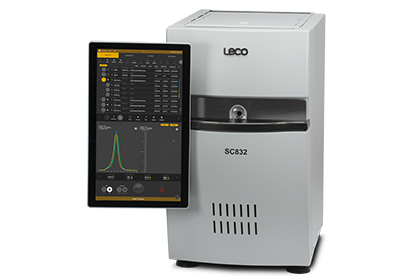LECO Solutions for Metals & Mined Materials
LECO’s state-of-the-art analytical instruments are revolutionizing quality control, process optimization, and research in the Metals and Mined Materials industry. Our advanced solutions empower mining companies, metal producers, and materials researchers to enhance efficiency, ensure product quality, and drive innovation.
Partnering with LECO means more than just acquiring analytical instruments – it’s about gaining a competitive edge in the dynamic Metals and Mined Materials industry. Our solutions enable you to:
- Optimize extraction and refining processes for improved yield and reduced costs
- Ensure consistent product quality to meet or exceed industry standards and customer expectations
- Stay ahead of evolving regulatory requirements with confidence
- Drive innovation in alloy development and advanced materials research
- Make data-driven decisions to maximize resource utilization and minimize environmental impact
Choose LECO to power your analytical capabilities and unearth new possibilities in the ever-evolving landscape of metals and mined materials.
Carbon determination in Li-NMC is important as the Carbon content directly impacts the performance of this battery material. In addition, emerging battery technologies can take advantage of improved Sulfur utilization when Li-NMC is used as an additive, making Sulfur determination in the base material an important quality control procedure.
Designed for Metals & Mined Materials




Application Notes
Learn more with our latest Metals & Mined Materials application notes.
-
Bulk Analysis of Cast Iron
Atomic Emission Spectroscopy can determine elemental content of solid conductive materials. The GDS900 is designed to analyze ferrous and nonferrous metals, including cast iron.
- Carbon and Sulfur in Cast Iron using CS744
- Carbon and Sulfur in Fluorspar using CS844
- Carbon and Sulfur in High Carbon Ferroalloys using CS Series
- Carbon and Sulfur in High Carbon Ferroalloys using CS844
Videos
Watch our most recent videos on Metals & Mined Materials.
-
Cement Clinker Preparation and Microscopic Examination
Cement Clinkers are an intermediate product in the production of Portland Cement, one of the key ingredients in the manufacturing of concrete. Microscopic examination and analysis of Clinkers is a Quality Assurance process that assesses the nature and quality of Clinker constituents. This Webinar will discuss the process of sample preparation, microscopic examination, and the assessment of Cement Clinkers.
-
Carbon and Nitrogen Determination in Adhesives, Laminates, and Cement Fiber Board
Determination of carbon and nitrogen in construction materials plays an important role in maintaining quality and durability of these products. This webinar will focus on this application using both the LECO CN928 and the C832. Data will be presented from a wide range of materials used in the construction industry. | Presented by Fred Schultz, Applications Chemist
-
Total Sulfur and Carbon Determination in Cement and Raw Materials
This webinar will review the application of the LECO SC832 family for the determination of sulfur and carbon in a wide variety of construction materials. Sample types covered in this presentation include cement, fly ash and ore materials. In addition, the basic operating principles will be covered as well as software features that can be used to simplify the analysis and reporting of results. | Presented by Lloyd Allen, Ph.D., Director Technical Services Laboratory
